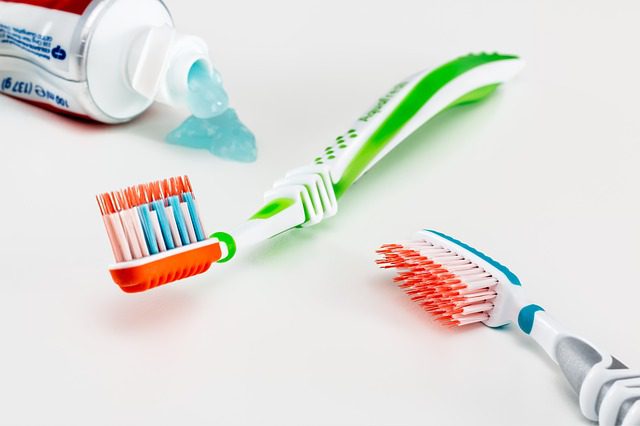Tooth decay and gum disease are the leading causes of tooth loss. There are over 36 million people in the US with no teeth, and over 120 million with at least one missing tooth. Decayed and lost teeth are a result of injury, disease, decay or simple wear and tear. In turn, tooth loss disproportionately affects lower-income populations and people of color.
Bacteria in cavities eats enamel, and can cause your teeth, gums and jaw to become infected. When these problems weaken the tissues that support your teeth, teeth can loosen and fall out. Or the tooth itself can be so infected and decayed that it becomes compromised and breaks or falls out. Even one missing tooth puts the health of the rest of your mouth at risk for jaw deteriorating, teeth shifting and undue tooth decay.
Preventing Tooth Loss
Sometimes tooth loss is out of our control. Facial trauma, for instance. And chronic diseases that weaken bones and the immune system can make it difficult to manage infections and other oral complications. But the vast majority of the time, tooth loss is totally under your control.
- Brushing and flossing every day, and getting cleanings twice a year, can prevent the plaque build-up that causes cavities and gum disease.
- Drinking plenty of water and avoiding acidic and sugary food and drinks.
- If you notice a problem with your teeth or gums, you should not wait for your next regular dental appointment, but see your dentist right away.
- Living a healthy lifestyle, as it supports your immune system.
Sometimes people avoid the dentist – even if a tooth hurts – because they’re afraid of pain, or don’t have the money for treatments. But putting off dental care will usually make the problem worse, and you may face tooth loss if you ignore symptoms.
If money is the problem, this website may be able to help you locate a free dental clinic near you.
Diet & Dental Health
Sugary foods and snacks, soda pop, smoking, chewing tobacco, and teeth grinding all can play a role in dental health:
- It is important to brush your teeth after consuming sugary foods or drinks, because sugar can accelerate tooth decay. Soda contains phosphoric acid, which can inhibit calcium absorption. However, wait at least 30 minutes before brushing, as brushing immediately after consuming these types of foods can cause enamel erosion.
- Smoking and chewing tobacco can also damage your teeth and gums. Due to the unhealthy effects that habitual tobacco consumption has on the mouth and throat, smokers are twice as likely to lose teeth as nonsmokers.
- Grinding your teeth can make them shorter and more prone to decay.
To protect your teeth, maintain a healthy diet with adequate calcium, protein, and other nutrients. If you are having dental problems, talk to your dentist about how you can change your diet to protect your smile.
SCHEDULE AN ORAL SURGERY APPOINTMENT
Diabetes & Dementia
If you experience tooth loss or decay on a regular basis, it would be a good idea to get tested for diabetes. Here’s how diabetes can exacerbate tooth decay:
Your mouth is loaded with bacteria that feed on starches and sugars on your teeth. This results in plaque that contains acids that erode the surface of your teeth and cause tooth decay. The higher the sugar content is in your blood, the more sugars and starches you’ll have to feed the bacteria that eat your teeth and cause tooth decay.
As well, diabetes takes a toll on the immune system, lowering the body’s white blood cell count and leaving you more susceptible to oral infections caused by that increase in sugars, bacteria and associated acids. So finding out if you have diabetes (many people have it and do not know it), and keeping your blood sugar under control, can go a long way toward preventing tooth loss.
Tooth loss has also been linked to dementia in the elderly. Specifically, a meta-analysis of studies analyzing tooth loss and cognitive decline suggested that a lost tooth leads to an increased risk for future cognitive impairments like dementia, with every additional tooth lost increasing that risk.
These are serious conditions that can cause permanent complications, so it’s important to keep up on your oral care and attend those twice-yearly dental exams.
Tooth Loss in Children
Most of the time, you should let children’s baby teeth come out naturally, and not try to force them out. It’s okay to wiggle a loose tooth, but pulling teeth before they’re ready to come out can cause the root to break or become stuck in the gums, which can lead to infection or other dental problems.
Once their permanent teeth come in, children usually only lose their teeth when injured (from falls or playing contact sports), or if they have an autoimmune disorder. If your child’s permanent teeth are falling out, it could be a sign of a serious disease, so you should see your doctor immediately.
Healthy Teeth, Healthy You
Tooth loss can be either a symptom or a cause of additional health problems, so taking care of your teeth is an important practice for overall health. When it comes to your health, prevention is always better than mitigation. A skilled oral health practitioner can help you keep a fully-toothed smile well into your golden years.








